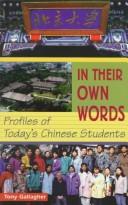| Listing 1 - 7 of 7 |
Sort by
|

ISBN: 0333677080 9780333677087 Year: 2004 Publisher: Basingstoke Palgrave Macmillan
Abstract | Keywords | Export | Availability | Bookmark
 Loading...
Loading...Choose an application
- Reference Manager
- EndNote
- RefWorks (Direct export to RefWorks)
The traditional role of education was to promote social integration, but there has been increasing recognition that most, if not all, societies contain significant social and ethnic divisions. Schooling systems have responded in a variety of ways, but it is unclear which type of system best promotes positive inter-community relations. Education in Divided Societies examines the experience of a number of different systems, including common school systems used in the United States and Britain, federalized education in a number of the most diverse European societies, and the effects of separate schools in Northern Ireland and apartheid South Africa. The book argues that the relationship between structure and outcomes is highly dependent on local circumstances and that no system guarantees predictable outcomes. Rather, it argues that school systems should promote processes of dialogue and that this is best achieved in circumstances where the relationships between different communities are as interconnected as possible.
Ethnicity --- Minorities --- Multicultural education --- Education

ISBN: 083512634X Year: 1998 Publisher: San Francisco (Calif.) China books and periodicals
Abstract | Keywords | Export | Availability | Bookmark
 Loading...
Loading...Choose an application
- Reference Manager
- EndNote
- RefWorks (Direct export to RefWorks)
College students --- English language --- Attitudes --- Study and teaching --- Beijing da xue --- Students --- Attitudes.
Book
Abstract | Keywords | Export | Availability | Bookmark
 Loading...
Loading...Choose an application
- Reference Manager
- EndNote
- RefWorks (Direct export to RefWorks)
Multicultural education --- Multiculturalism --- Study and teaching
Book
ISBN: 9789287190185 Year: 2020 Publisher: Strasbourg : Conseil de l'Europe,
Abstract | Keywords | Export | Availability | Bookmark
 Loading...
Loading...Choose an application
- Reference Manager
- EndNote
- RefWorks (Direct export to RefWorks)
University autonomy --- Autonomie universitaire --- Democracy and education --- Démocratie et éducation --- Academic freedom --- Liberté de l'enseignement --- Enseignement supérieur --- Education, Higher --- Comparative law --- Droit comparé
Book
ISBN: 9789004512740 9789004512733 Year: 2022 Publisher: Leiden;Boston Brill
Abstract | Keywords | Export | Availability | Bookmark
 Loading...
Loading...Choose an application
- Reference Manager
- EndNote
- RefWorks (Direct export to RefWorks)
Collaborative engagement between activist academics from Israel and Northern Ireland highlighted the challenges and potential of working through education to promote shared learning and shared life in divided societies. Following these initial explorations, the volume brought together educationalists from Europe, the United States and South Africa to widen the range of experience and insights, and broaden the base of the conversation. The result is this book on the role of shared education, not only in deeply divided societies, but also in places where minorities face discrimination, where migrants face prejudice and barriers, or where society fails to deal positively with cultural diversity. Together, the contributors challenged themselves to develop theoretical and practical paradigms, based on practical knowledge and experience, to promote activist pedagogies. Their shared purpose was to work for more humane, just and democratic societies, in which education offers genuine hope for sustained transformational change. The four main themes around which the book is organized are: educating for democratic-multicultural citizenship, models of shared learning, nurturing intercultural competencies, and reconciling dialogue in the face of conflicting narratives. The book draws on a wide range of international perspectives and insights to identify practical strategies for change in local contexts.
Book
ISBN: 0203884051 0415468698 0415468701 9780203884058 9780415468695 9780415468701 Year: 2009 Publisher: Abingdon Routledge
Abstract | Keywords | Export | Availability | Bookmark
 Loading...
Loading...Choose an application
- Reference Manager
- EndNote
- RefWorks (Direct export to RefWorks)
Action research in education --- Education --- Group work in education --- Marginality, Social --- Parent participation
Book
ISBN: 0230608426 9780230608429 Year: 2009 Publisher: New York Palgrave Macmillan
Abstract | Keywords | Export | Availability | Bookmark
 Loading...
Loading...Choose an application
- Reference Manager
- EndNote
- RefWorks (Direct export to RefWorks)
Conflict management --- Peace --- Postwar reconstruction --- Study and teaching
| Listing 1 - 7 of 7 |
Sort by
|

 Search
Search Feedback
Feedback About UniCat
About UniCat  Help
Help News
News